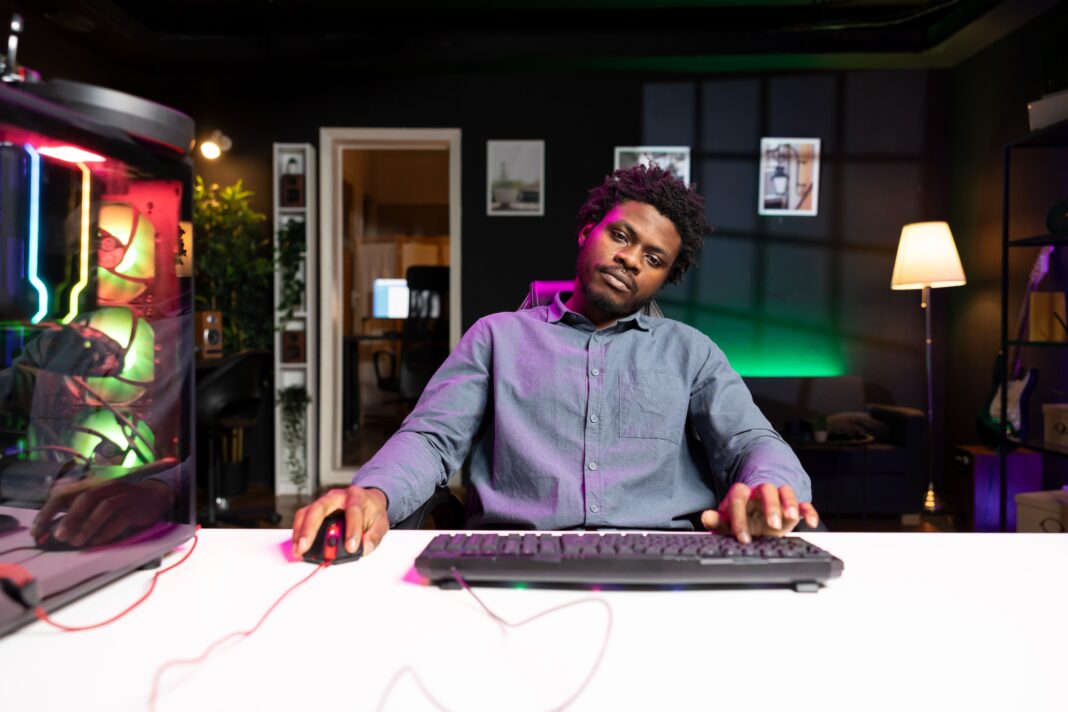Gaming is one of the most popular forms of entertainment worldwide, with millions of people engaging in it daily. However, one of the most overlooked consequences of gaming is its effect on sleep. Many gamers, whether casual or hardcore, often sacrifice sleep to extend their playtime, unaware of the long-term health implications.

This article provides an in-depth exploration of how gaming influences sleep, the scientific mechanisms behind this disruption, and actionable strategies to mitigate its negative effects. Whether you play mobile games occasionally or spend hours in competitive esports, understanding the relationship between gaming and sleep can help you maintain better health without giving up your favorite pastime.
How Gaming Negatively Affects Sleep Quality
1. Blue Light Exposure and Its Suppressive Effect on Melatonin
One of the most well-documented ways gaming disrupts sleep is through blue light emission from screens. Modern gaming devices—whether PCs, consoles, or smartphones—emit significant amounts of blue light, which interferes with the body’s natural sleep-wake cycle.
- Melatonin Suppression: Blue light tricks the brain into believing it is still daytime, delaying the release of melatonin, the hormone responsible for inducing sleep. Studies have shown that exposure to blue light before bedtime can reduce melatonin production by up to 50%, making it harder to fall asleep.
- Delayed Sleep Onset: Gamers who play late into the night often struggle with insomnia-like symptoms, taking much longer to fall asleep than those who avoid screens before bed.
- Reduced REM Sleep: Even if a gamer manages to sleep, the quality of rest is often poor. REM (Rapid Eye Movement) sleep, which is crucial for memory consolidation and emotional regulation, is significantly reduced due to prolonged screen exposure.
2. Increased Cognitive Arousal and Hyperstimulation
Gaming is an inherently engaging activity that requires constant attention, quick reflexes, and strategic thinking. Unlike passive entertainment (such as watching TV), gaming keeps the brain in a state of high alert, making it difficult to transition into a relaxed state conducive to sleep.
- Adrenaline and Cortisol Release: Competitive games, especially multiplayer online battle arenas (MOBAs) and first-person shooters (FPS), trigger adrenaline and cortisol production. These stress hormones increase heart rate and mental alertness, counteracting the body’s natural wind-down process.
- Difficulty in “Switching Off” the Brain: Many gamers report lying awake at night replaying game scenarios in their minds, a phenomenon known as “game transfer phenomenon” (GTP). This mental replaying of in-game events prolongs wakefulness and disrupts sleep initiation.
3. Disruption of Circadian Rhythms
The human body operates on a 24-hour internal clock known as the circadian rhythm, which regulates sleepiness and wakefulness. Irregular gaming habits—such as late-night sessions—can desynchronize this rhythm, leading to long-term sleep disorders.
- Delayed Sleep Phase Syndrome (DSPS): Frequent late-night gaming can shift a person’s natural sleep window later into the night, making it difficult to wake up early for work or school.
- Social Jetlag: Weekend gaming marathons followed by abrupt early wake-ups on weekdays create a mismatch between biological and social time, leading to chronic fatigue.
4. Sleep Deprivation and Its Consequences
When gaming consistently cuts into sleep time, the accumulated sleep debt leads to severe cognitive and physical health issues.
- Impaired Memory and Learning: Sleep is essential for memory consolidation. Gamers who sleep less than six hours per night show reduced retention of new information.
- Mood Disorders: Chronic sleep deprivation is linked to increased irritability, anxiety, and depression. A study published in Sleep Medicine Reviews found that adolescents who gamed excessively reported higher levels of emotional instability.
- Weakened Immune System: Prolonged lack of sleep lowers immune function, making frequent gamers more susceptible to illnesses.
The Science Behind Gaming-Induced Sleep Disruption
1. The Role of Dopamine in Gaming Addiction and Sleep
Dopamine, the “reward chemical,” is heavily involved in gaming. Each in-game achievement, level-up, or victory triggers dopamine release, reinforcing prolonged play.
- Dopamine’s Effect on Sleep: High dopamine levels keep the brain in an excited state, delaying the natural transition to sleepiness.
- Addiction-Like Behavior: The constant pursuit of rewards in games can lead to compulsive gaming, where players ignore sleep in favor of “just one more match.”
2. Cortisol and the Stress Response in Competitive Gaming
Competitive gaming (eSports, ranked matches) induces a fight-or-flight response, raising cortisol levels.
- Impact on Deep Sleep: Elevated cortisol before bed reduces slow-wave sleep (deep sleep), which is essential for physical recovery.
- Long-Term Stress Effects: Frequent high-stress gaming sessions can lead to chronic stress, further worsening sleep quality.
3. The Influence of Game Genre on Sleep Disruption
Not all games affect sleep equally:
- Fast-Paced Games (FPS, MOBA, Battle Royale): These genres are highly stimulating and more likely to disrupt sleep.
- Slow-Paced Games (Puzzle, Simulation, RPGs): Less disruptive but can still cause sleep delays if played excessively.
- Multiplayer vs. Single-Player: Multiplayer games, which lack natural stopping points, are more likely to lead to extended play sessions.
Practical Strategies to Minimize Gaming’s Impact on Sleep
1. Implement a Gaming Curfew
- Stop gaming at least 90 minutes before bedtime to allow the brain to wind down.
- Replace gaming with relaxing activities (reading, meditation, light stretching).
2. Use Blue Light Filters
- Enable “Night Mode” on devices or use blue light-blocking glasses.
- Consider gaming monitors with built-in eye-care technology.
3. Optimize the Sleep Environment
- Keep the bedroom dark, cool, and free from gaming devices.
- Avoid gaming in bed to strengthen the mental association between bed and sleep.
4. Monitor Caffeine and Energy Drink Intake
- Avoid caffeine at least 6 hours before bedtime.
- Energy drinks, often consumed by gamers, contain high caffeine and sugar levels that worsen sleep disruption.
5. Track Sleep Patterns
- Use sleep trackers (Fitbit, Oura Ring) to monitor how gaming affects sleep quality.
- Adjust gaming habits based on data trends.
FAQ: Common Questions About Gaming and Sleep
Q1: Can gaming cause long-term insomnia?
Yes, chronic late-night gaming can lead to persistent insomnia by altering circadian rhythms and increasing cognitive arousal.
Q2: Are some gaming platforms worse for sleep than others?
Mobile gaming (in bed) is particularly harmful due to close screen proximity. Console/PC gaming may be slightly less disruptive if played earlier in the evening.
Q3: How does gaming compare to watching TV before bed?
Gaming is more disruptive because it requires active engagement, whereas TV watching is passive.
Q4: Can gaming addiction lead to sleep disorders?
Yes, gaming addiction is associated with delayed sleep phase disorder and chronic sleep deprivation.
Q5: Do blue light glasses really help gamers sleep better?
Studies suggest they reduce melatonin suppression, but the best solution is reducing screen time before bed.
Conclusion
Gaming doesn’t have to ruin your sleep—awareness and moderation are key. By setting boundaries, optimizing sleep hygiene, and understanding the science behind gaming’s effects, you can enjoy gaming without sacrificing rest. If sleep problems persist, consider consulting a sleep specialist for personalized advice.
Would you like any section expanded further? I can provide additional studies, case examples, or alternative strategies if needed.

